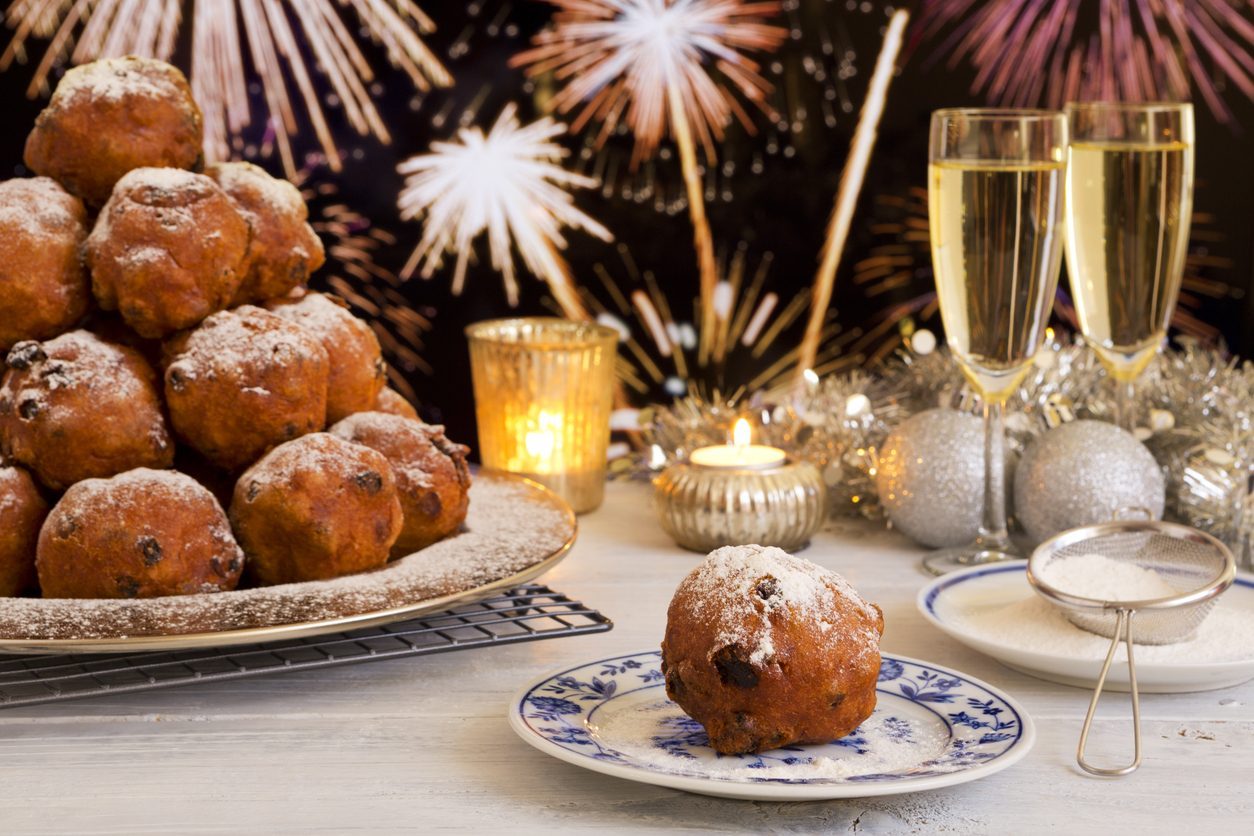Oliebollen: the simple recipe for traditional Dutch doughnuts
;Resize,width=742;)
Ingredients
Oliebollen, or ollie-bollen, are easy, deep-fried Dutch pastries similar to American doughnuts. Literally "oil balls", olliebollen are traditionally served during New Year's Eve.
To make this recipe, you simply make a pastry which you can enjoy plain, filled with raisins, currants or chopped apples. Dust these sweet treats with confectioner's sugar before serving, it will give the right amount of sweetness.
Crisp on the outside and soft on the inside, you can enjoy oliebollen as a dessert or snack. The best part of this recipe is you need simple pantry ingredients to whip up these delicious oliebollen – flour, yeast, milk, sugar, eggs, oil and an optional filling.
What are Oliebollen?
Oliebollen (singular oliebol) is a delicious dessert recipe to make deep-fried Dutch pastries. You can enjoy them plain, filled with raisins, currants, or chopped apples or dusted with confectioner's sugar before serving.
Very popular throughout Belgium and Netherland areas, oliebollen term literally means "oil balls", even if this recipe is simply known as Dutch doughnuts.
This is a go-to recipe for traditional New Year's Eve dinners and winter funfairs that hides a legend. The story says that the evil goddess Perchta used to go in search of food during the 12 days of the Christmas period, to the point of cutting people's stomach with her sword. Then, people started to defend themselves by eating oliebollen because it was thought that the fat absorbed by the cooking oil protected their stomach from the attack of Perchta's sword.

Oliebollen Origins
Although its origins are still unclear, it is thought that oliebollen were first made by Germanic tribes in Belgium and the Netherlands during Yule, the period between December 26 and January 6.
It is also thought that later Dutch settlers spread this recipe to America, making oliebollen the predecessors of the traditional doughnuts we know today.
Tips for making Dutch Doughnuts
The perfect oil temperature should be maximum 180°C/350°F, so make sure to use a deep-fry thermometer. If it's too hot or cold, Dutch doughnuts will be uncooked on the inside.
For oliebollen made without fresh yeast, replace it with 4 teaspoons baking powder.
You can swap buttermilk for lukewarm milk.
Oliebollen are traditionally deep-fried, so avoid to bake them.
Oliebollen Variations
Each country has its own oliebollen recipe. In Belgium they're known as smoutebollen (or lard balls), while French people call them croustillons.
You can add raisins, currants, chopped apples or even cranberries to the oliebollen batter. Some recipes also call for citrus zest, succade and candied cherries.
Top oliebollen with a scoop of creamy toppings such as whipped cream, ice cream or drizzle your favorite sauce.
How to store Oliebollen
You can store oliebollen at room temperature for 2 days, closed in an airtight container.
Before serving, reheat them in the oven at 200°C/380°F for about 15 minutes, or in the microwave on high for up to 30 seconds.
Can you freeze Dutch Oliebollen?
Absolutely! You can freeze oliebollen Dutch doughnuts for up to 2 months. Thaw overnight and reheat them before serving.
How to make Oliebollen

In a small bowl, dissolve the yeast in the milk. Let it rest until frothy.

In another bowl, mix the flour, salt and sugar.

Add in the eggs and the yeast mixture. Whisk. Add the raisins or currants and apple pieces. Cover the bowl with a towel and let it rise for about 1 hour.

Heat the oil in a pan until it reaches 180°C/350°F.

Scoop out about 2 tablespoons of the batter, then deep-fry them for about 5 minutes or until crispy and golden brown.

Once ready, place the oliebollen in a colander layered with kitchen paper towels, to absorb the remaining oil. Serve still hot and enjoy!
;Resize,width=767;)
;Resize,width=712;)
;Resize,width=712;)
;Resize,width=712;)
